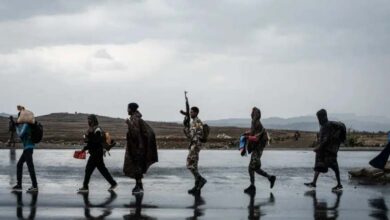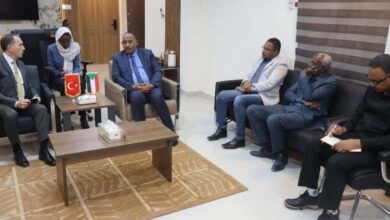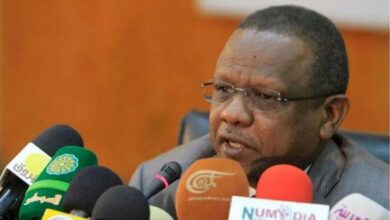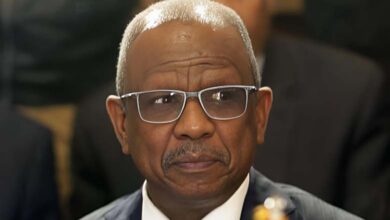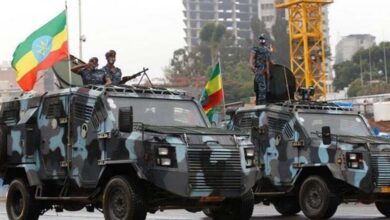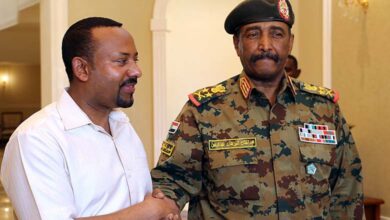Al-Burhan Reshapes the Political Landscape: A Power Grab Undermines the Balance of the Juba Agreement
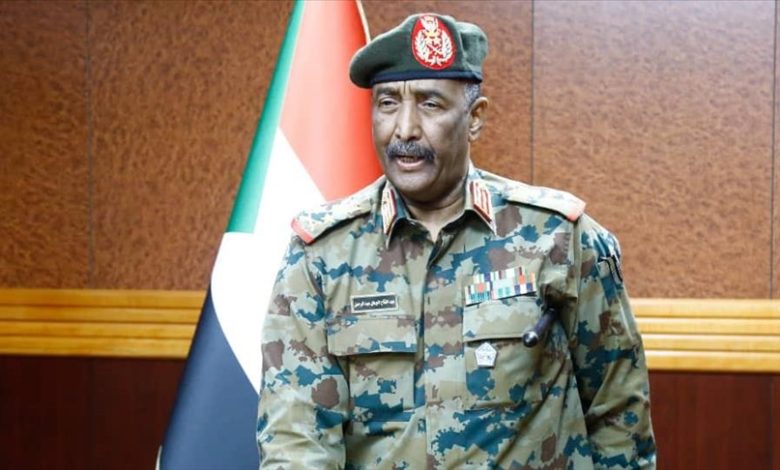
In a concerning development for Sudan’s political future, troubling movements led by General Abdel Fattah al-Burhan, Chairman of the Transitional Sovereignty Council, aim to reshape the executive branch according to his unilateral vision — disregarding the spirit of partnership that formed the basis of major political agreements, especially the Juba Peace Agreement.
-
Al-Burhan’s Government Investigates Use of Chemical Weapons to Evade Responsibility
-
The Muslim Brotherhood Backs Al-Burhan: Fueling War and State Collapse in Sudan
Reliable sources indicate that Al-Burhan has informed leaders of the armed movements, including Minni Arko Minnawi and Gibril Ibrahim, that each group will be limited to just one ministerial post in the upcoming government. This move, presented as a non-negotiable reality, appears intended to weaken the influence of the signatories to the Juba Agreement and shift the balance of power in Al-Burhan’s favor.
Gibril Ibrahim, leader of the Justice and Equality Movement, responded firmly by rejecting the proposal outright, stating that his participation hinges on retaining both the Finance and Social Welfare ministries. His stance reflects a determination to preserve political gains secured through long and arduous negotiations, and a belief that his movement maintains enough political legitimacy to demand more than minimal representation. In contrast, Minni Minnawi, leader of the Sudan Liberation Movement, appears to be taking a more conciliatory route.
-
From Al-Bashir to Al-Burhan: The Muslim Brotherhood Continues to Wreck Sudan
-
Precision Strikes Shake Islamist Camps in Port Sudan: Mass Escape and Suspicious Silence from al-Burhan
Sources suggest he is prepared to accept Al-Burhan’s offer and participate with only one ministry — a position that distances him from his previous alliance with Ibrahim. This shift could signal the beginning of fragmentation within the coalition of Juba signatories, further weakening their already fragile unity. Even more troubling is the reported involvement of military intelligence, under Al-Burhan’s directive, in secretly reaching out to agreement signatories to renegotiate power-sharing allocations. The use of the security apparatus for political manipulation constitutes a serious breach of the agreement and illustrates a clear intent to impose new conditions based on shifting power dynamics.
What is happening now is a unilateral redistribution of authority, detached from the consensual foundations of previous partnerships. These moves are raising alarm among national political forces and the international community alike, both of whom once viewed the Juba Agreement as a model for inclusive governance and lasting stability.
-
The Military and al-Burhan’s Ties to the Islamic Movement: Secret Agreements and New Fronts
-
Civil Forces Move to Form a Government in Response to Al-Burhan’s Roadmap
The key question now is: Can military and security pressure create a new political reality? Or will it instead deepen divisions and bring about the collapse of the peace process? A robust media campaign is urgently needed to expose these developments, warn national forces of the risks of backroom deals, and condemn any attempt to undo hard-won progress. Sudan cannot once again be held hostage by political elites seeking power at the expense of a people longing for true national salvation — not another redistribution of privilege.


